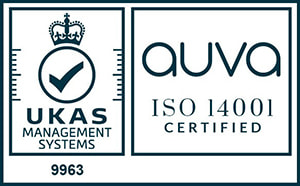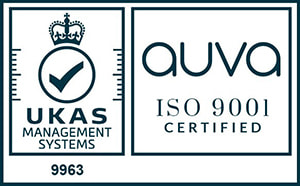It’s official: our boilers are the most reliable!
We’re aware that we do go on a bit about just how revolutionary the design of our boilers is, and how this design is responsible for their rock solid reliability. Well, this week Which? Magazine published its Trusted Traders report on boiler faults, and it supports everything we’ve been saying about Intergas brand reliability since 2008 (that’s the year the boiler range was first available in the UK). Needless to say, we’re delighted that this key benefit has been independently recognised.
The report, issued on 24th November, was investigating the most common gas boiler repairs and their cost, and tackled the issue of which components were most likely to develop a fault. According to the Trusted Traders, the components that let you down, in order of unreliability, are: (i) the diverter valve, (ii) automatic air vent, (iii) pressure relief valve and (iv) printed circuit board.
If you’re an installer who already fits Intergas, then you already know our combis don’t have a diverter valve or an automatic air vent (AAV), which helps to make our boilers super reliable. But perhaps top of your list is the bithermic heat exchanger, which enables our combis to condense virtually all the time they’re producing domestic hot water, which is fairly amazing as boilers go, saving energy and keeping your customers’ carbon emissions and energy bills as low as possible.
If you’re a homeowner and are interested in a boiler that’s scrooge-like in its energy use, but unbelievably reliable, you might find the Which? Magazine Trust Traders report a really useful read. You can find the full report here (link to the full Which? report https://www.which.co.uk/news/2020/11/how-much-does-a-broken-boiler-cost-to-repair/ ), but here are the highlights:
Which? asked their Trusted Traders to tell them, in their expert opinion, which parts are most likely to fail in a gas boiler and what the average cost of a repair is likely to be. Costs, including parts and labour, will vary depending on the boiler and where you live, but here’s a breakdown:
Diverter/zone valve: £187
A diverter valve controls the flow of hot water, sending it either to radiators or to taps and showers. It’s only needed in boilers that heat hot water on demand (that means combis). If the valve should fail in any way (it’s a moving part and can sometimes get stuck), the boiler cannot prioritise where to
send hot water, so you might get hot water, but the radiators are cold or vice versa. You should always call a Gas Safe-registered heating engineer to free or replace a stuck diverter valve.
Automatic air vent: £98
The AAV releases air that’s built up in the heating system. It’s a moving part, so can sometimes stuck and, when that happens you might notice that the radiators are cold at the top because the trapped air is preventing the hot water from flowing through the whole radiator, that the radiators are noisy or that water is leaking out of the air vent. Rust can also build up inside the radiator, which will store up further problems for the future. This is not a problem you can solve yourself, a Gas Safe-registered heating engineer can diagnose and fix a faulty air vent.
Pressure relief valve: £101
The pressure relief valve is an important safety component. When the pressure in a heating system becomes too high, the valve opens allowing water or steam to pass through, and the pressure drops back to safe levels. A faulty pressure relief valve might result in your heating system repeatedly losing pressure (although other faults can cause this pressure loss too) , it might leak even when the system’s at normal pressure or the valve or the copper exit pipe (a small pipe that exits your property, usually close to the boiler) might leak. You need to contact a Gas Safe-registered heating engineer to diagnose the problem and carry out the repair.
Printed circuit board: £268
The circuit board is the ‘brain’ of the heating system, monitoring pressure, temperature and water currents, and ensuring all the components of the system work efficiently together. If it’s faulty, the boiler may stop altogether or only work intermittently; if there’s a burning smell parts of the circuit board could have burnt out. The main cause of breakdown is from leaking water in the boiler or the solder connecting the electrical components coming adrift. Again, you need to contact a Gas Safe-registered heating engineer to diagnose the problem and carry out the repair.
As you know two of these four important components (the diverter valve and the AAV) aren’t in an Intergas combi; if you’re curious about why they’re not, please read on:
Diverter valve
Normally a combi boiler has two heat exchangers, the primary one is for heating, the secondary plate heat exchange is for hot water. The diverter valve is used to switch between the two. Our bithermic heat exchanger (its design is unique and it’s patented) is built in one, with two separate circuits, one for heating, the other for hot water, which renders a diverter valve unnecessary.
Automatic air vent
An automatic AAV is prone to leaks as dirt and debris can become trapped in the AAV’s housing. Intergas prefers to avoid that problem and only uses a manual air vent in all its boilers.






